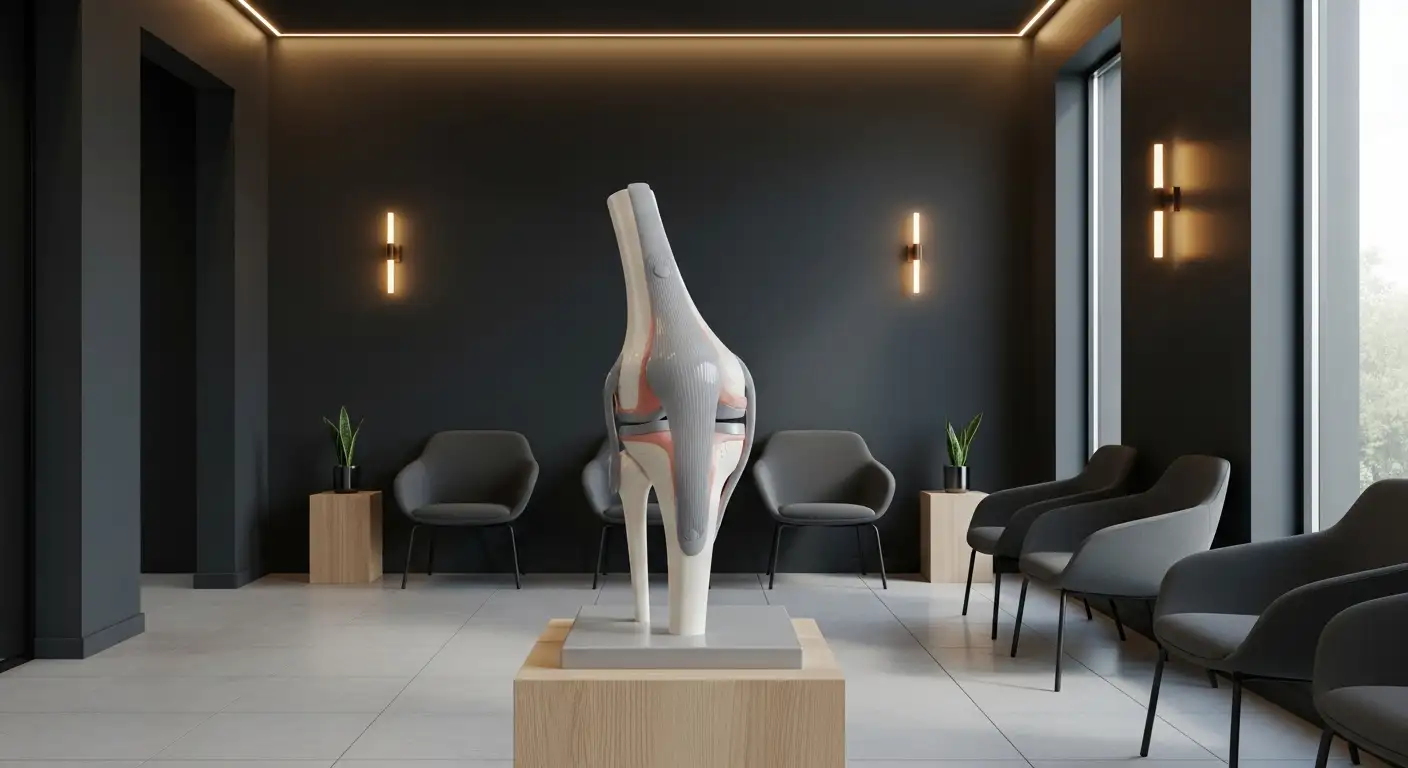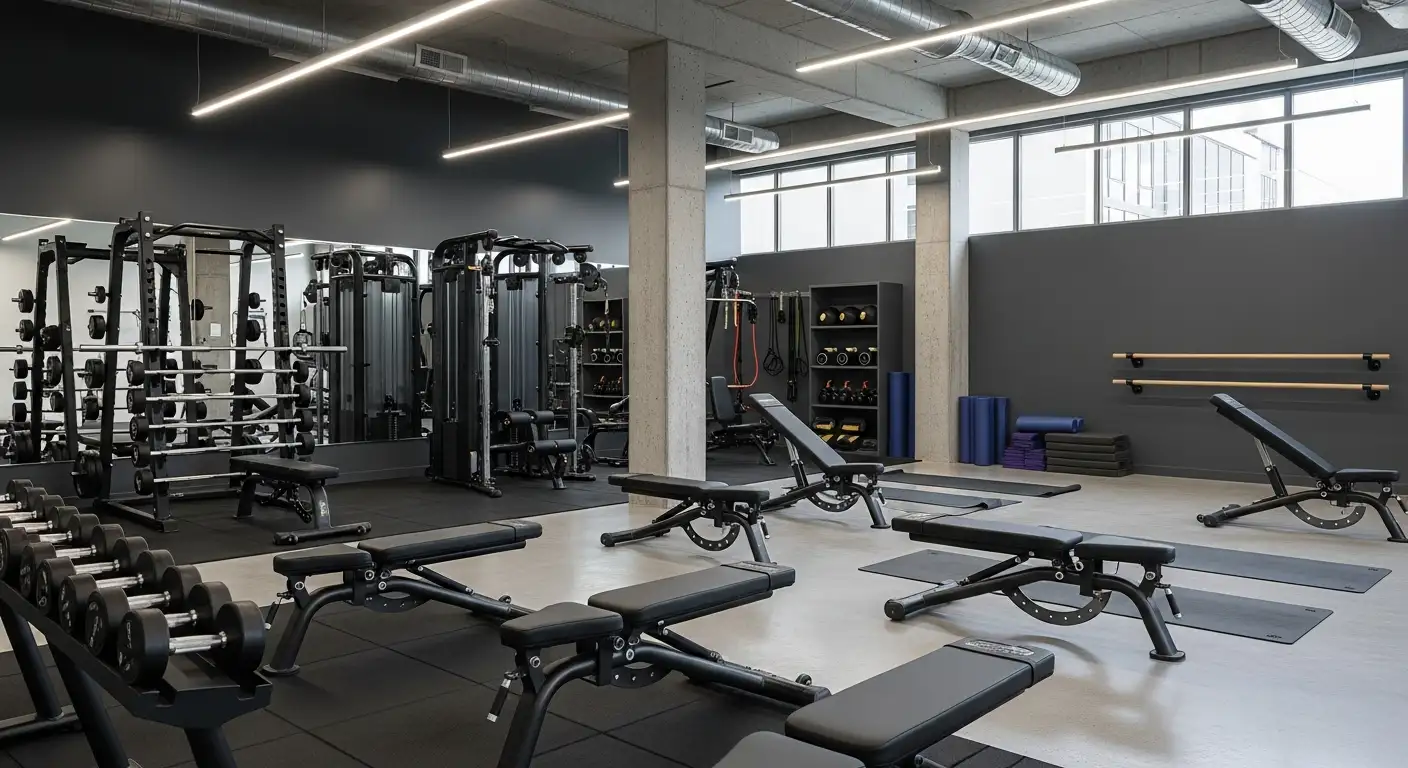Understanding Knee Stiffness
Knee stiffness can be a debilitating symptom affecting your mobility and overall quality of life. It's a condition that can have multiple causes, and understanding these can be essential for effective treatment. So, let's delve into what causes stiff knees, and specifically, the impact of meniscus injuries and the role of ligament injuries.
Causes of Knee Stiffness
Several factors can contribute to knee stiffness. This includes injuries, medical conditions, mechanical issues, and lifestyle factors.
Injuries to the knee, such as those to the meniscus or ligaments, are common causes of knee stiffness. These can occur due to sudden movements, twists, or trauma during physical activities.

Medical conditions like rheumatoid arthritis, osteoarthritis, or post-traumatic arthritis can also lead to stiff knees. These conditions cause inflammation in the knee joint, leading to stiffness and pain.
Mechanical issues, such as misalignment or imbalance in the knee joint, can put extra pressure on certain areas, causing stiffness. Similarly, lifestyle factors like lack of physical activity or carrying excess weight can also put strain on the knees, leading to stiffness.
Impact of Meniscus Injuries
The meniscus is a piece of cartilage that provides a cushion between your femur (thigh bone) and tibia (shin bone). Meniscus injuries can occur through sudden movements or twists during physical activities, leading to a "pop" sound and subsequent stiffness in the knee. Degeneration of the menisci with age can make them more prone to tearing.
A meniscus injury can cause pain, swelling, difficulty in moving the knee over its full range of motion, and a feeling of the knee being locked in a certain position. These restrictions on movement can result in stiffness in the knee area.
Role of Ligament Injuries
Ligament injuries in the knee, such as sprains, tears, or ruptures, can result in knee stiffness. Ligaments connecting the thigh bone to the lower leg bone play a crucial role in knee movement. Injuries to these ligaments can lead to swelling, stiffness, and limited movement [1].
Ligament injuries can occur due to trauma or hyperextension of the knee, often in highly active people or while playing sports. Such injuries can greatly impact the mobility and functionality of the knee, leading to stiffness.
Understanding the causes of knee stiffness, particularly the impact of meniscus and ligament injuries, can provide valuable insights into effective treatment strategies. It's essential to seek medical attention if you experience persistent knee stiffness to ensure accurate diagnosis and appropriate treatment.
Knee Stiffness from Medical Conditions
Medical conditions can often be the culprits behind stiff knees. In this section, we delve into three common conditions that can lead to knee stiffness: Rheumatoid Arthritis, Osteoarthritis, and Post-Traumatic Arthritis.
Rheumatoid Arthritis
Rheumatoid Arthritis (RA) is an autoimmune condition that can cause stiffness and pain in the knees. This is due to the swelling of the synovial membrane that lines the joints. In RA, the body's immune system mistakenly attacks the synovium, leading to inflammation and joint damage. This can result in symptoms such as pain, swelling, and stiffness in both knees [1].
Osteoarthritis Effects
Unlike Rheumatoid Arthritis, which is an autoimmune condition, Osteoarthritis (OA) is a degenerative joint disease. It is caused by wear and tear of the knee cartilage over time. This wear and tear can lead to the bones in the joint rubbing against each other, the formation of bone spurs, joint stiffness, and pain. Osteoarthritis of the knee is more common among individuals aged between 55-64 years.
Post-Traumatic Arthritis
Post-Traumatic Arthritis (PTA) is another condition that can lead to stiff knees. This form of arthritis can occur years after knee injuries such as meniscal and ligament tears. The initial injury causes damage to the cartilage or bone, which changes the mechanics of the knee joint. This can lead to excessive wear and tear, similar to osteoarthritis, resulting in stiffness and pain in the knee joint.
Each of these conditions can contribute to knee stiffness, and understanding their effects can help in managing the symptoms. It's important to consult with a healthcare professional if you're experiencing knee stiffness, as they can provide an accurate diagnosis and recommend appropriate treatment options.
Factors Contributing to Knee Pain
Knee pain, often associated with stiffness, can be a result of numerous factors ranging from mechanical issues to lifestyle habits. Understanding these contributing factors can aid in prevention and management strategies.
Mechanical Factors
Mechanical problems such as injuries, arthritis, and conditions like patellofemoral pain syndrome can all contribute to knee pain. Injuries to knee ligaments, for instance, can lead to swelling, stiffness, and limited movement and can occur due to trauma or hyperextension of the knee. Additionally, conditions like osteoarthritis and rheumatoid arthritis can lead to knee tightness due to damage to the knee joint, limiting function and range of motion.
Injuries can also occur to the meniscus, causing pain, swelling, and a limited range of motion, leading to a feeling of stiffness in the knee area.
Lifestyle Influence
Lifestyle factors can also play a significant role in what causes stiff knees. Lack of strength or flexibility in muscles, for instance, can increase the risk of knee injuries. A minor knee injury can even make individuals more susceptible to similar injuries in the future. Muscle weakness in areas like the quadriceps can result in knee tightness as well.
Preventive Measures
Understanding the causes of knee stiffness is the first step in implementing preventive measures. Building strength in particular muscle groups, such as the quadriceps and hamstrings, can assist in preventing knee pain. Incorporating balance, stability, and flexibility exercises into regular workout routines can also help.
It's clear that both mechanical and lifestyle factors can contribute to knee pain and stiffness. By understanding these influences, appropriate preventive measures can be taken to minimize the risk and manage existing conditions.
Managing Knee Stiffness
Addressing knee stiffness involves a combination of treatment options, physical therapy, and lifestyle adjustments. These measures not only help alleviate symptoms but also prevent further complications.
Treatment Options
There are several approaches to manage knee stiffness, including medications, physical therapy, and in severe cases, surgical intervention. Over-the-counter pain relievers and anti-inflammatory medications can help reduce pain and swelling.
For persistent knee stiffness, doctors may recommend corticosteroid injections or hyaluronic acid injections to provide relief. In severe cases, surgical procedures like arthroscopic surgery or knee replacement may be required to restore joint function.
In addition to medical interventions, applying ice packs or using heat therapy can provide temporary relief from knee stiffness and reduce inflammation.
Physical Therapy Benefits
Physical therapy plays a significant role in managing knee stiffness by improving strength, flexibility, and range of motion in the knee joint. Guided exercises help strengthen the muscles surrounding the knee, providing better support and stability. This approach can also help reduce pain and inflammation, enhancing overall mobility.
Physical therapists may also employ techniques like manual therapy and electrotherapy to alleviate stiffness and improve joint function. It's important to adhere to the therapy program and perform exercises regularly for the best results.
Lifestyle Adjustments
Lifestyle changes are a crucial part of managing knee stiffness. Maintaining a healthy weight can reduce pressure on the knee joint and minimize the risk of further damage [3]. Regular exercise, especially low-impact activities like swimming or cycling, can help strengthen the knee and improve flexibility.
Avoiding activities that worsen knee stiffness is also important. This might mean modifying certain aspects of your daily routine or finding alternative ways to perform tasks that put less stress on your knee.
Incorporating a balanced diet rich in anti-inflammatory foods can also contribute to better knee health. Remember, any lifestyle changes should be made gradually and in consultation with a healthcare provider to ensure they're safe and effective.
In conclusion, managing knee stiffness involves a comprehensive approach that combines treatment, physical therapy, and lifestyle changes. By understanding the options available, individuals can make informed decisions about their knee health and work towards improving their quality of life.
References
[1]: https://www.medicalnewstoday.com/articles/327499
[2]: https://www.healthline.com/health/tightness-in-knee
[3]: https://www.mayoclinic.org/diseases-conditions/knee-pain/symptoms-causes/syc-20350849
[4]: https://www.verywellhealth.com/stiff-knee-after-sitting-5094756
[5]: https://sportsmedtexas.com/blog/why-your-knee-feels-tight-when-bending/





